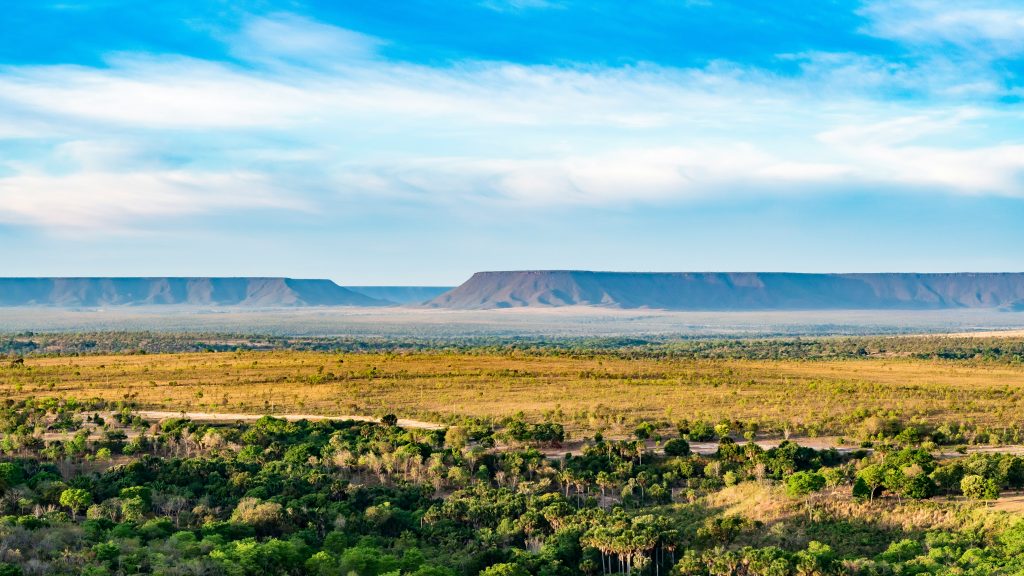With company support and by establishing partnerships with local financial institutions and Embrapa (Brazil’s Agricultural Research Organisation), Conservation International (CI) has been working to transform soy and cattle production in Brazil’s youngest state, Tocantins.
Tocantins, established in 1988, is located in the Cerrado – the world’s most biodiverse savannah[1]. In addition to being a biodiversity hotspot, it also accounts for 60% of Brazil’s agricultural production[2]. In 2023, deforestation and conversion rose in the Cerrado, increasing by 43% despite a 50% decline in the neighbouring Amazon. This increase was largely due to rising rates of agricultural expansion[3], with impacts and implications for nature and biodiversity as well as Tocantins’ and Brazil’s economy, including the livelihoods of future generations.
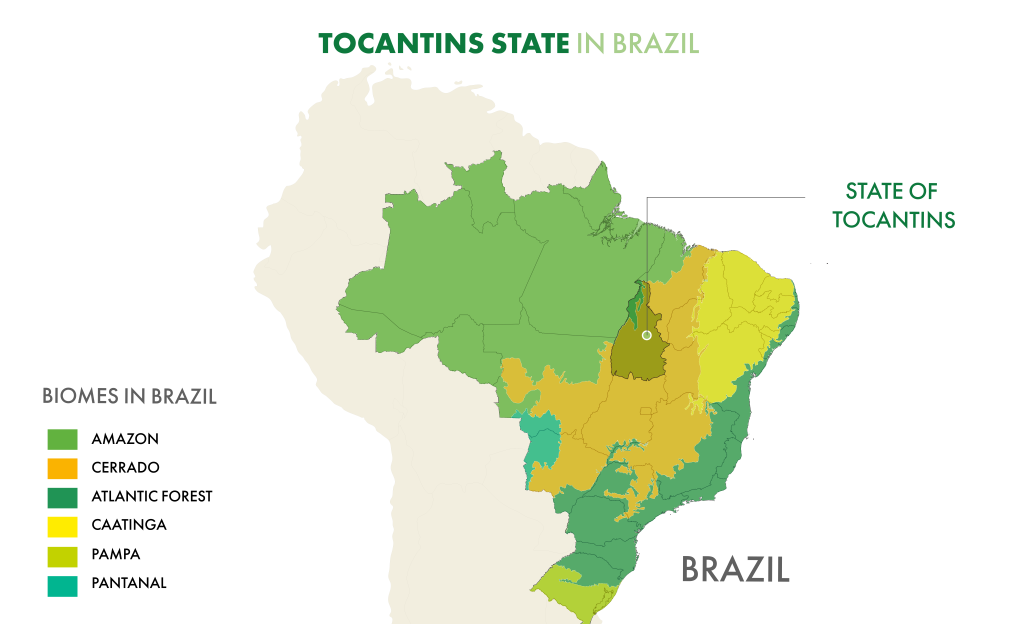
Building from their engagement with local stakeholders in the past seven years, CI established an initiative in 2021, with financial support from Carrefour, METRO AG, and Nestlé, which initially focused on deploying technical and financial assistance for soy and cattle farmers. The aim was to strengthen farmer capacity while creating incentives for improved commodity production across farms. The initiative supported farmers in adopting low-carbon, deforestation, and conversion free practices through training led by Embrapa, who is linked to Brazil’s Ministry of Agriculture. CI also engaged banks and local financial institutions to expand the availability of credit for producers. To date the initiative has trained 66 soy and cattle farmers as well as 58 extension workers in farms across 24 municipalities, representing 88,000 hectares (ha) of land under improved management[4].
“It was hard work in the beginning”, said Lilian Vendrametto, Director of Sustainable Landscapes at CI, “but we saw a big opportunity at the state level in Tocantins, as everything was new and to be created, there’s room for a big transformation”.
With this in mind, the initiative continues to grow – with a vision for jurisdiction-wide impacts for nature and livelihoods. In 2024, with support from Walmart Foundation, UNDP, and the Swiss government, CI and partners are working to establish a jurisdiction-wide multi-stakeholder platform that will improve governance and promote climate smart, resilient agricultural landscapes across the state of Tocantins, Brazil. This includes supporting conservation, improved land management, and restoration interventions as key elements of a broader participatory strategy to accelerate and upscale nature-based solutions as an ambitious subnational response to the climate crisis.
Raising the Technical Capacity of Producers
The initiative is in line with a national framework, Brazil’s Low-Carbon Agriculture Plan, or the ABC Plan[5], which builds on the government’s 2010 pledge to reduce greenhouse gas emissions. The plan aims to improve the sustainability of the agricultural sector by promoting environmentally friendly farming practices such as no-till, restoration of degraded areas and the integration of crops, livestock, and forest[6].
Out of 8 million ha of pastureland in Tocantins, more than 5 million ha are degraded[7] “To grow crops, we don’t need to destroy new places, but to regenerate these degraded areas,” stated Matheus Leal, Coordinator of Projects for CI Brazil. However, one of the major challenges for farmers in Tocantins is they lack the capacity to implement existing policy frameworks, like the ABC plan[8].
To help raise farmer capacity, CI began collaborating with Embrapa, who works with farmers to train them on low-carbon agriculture practices, connected to the public policy efforts on greenhouse gas mitigation[9]. “The key to our success is that we have a really close relationship with Embrapa, this changed everything,” said Lilian.
Embrapa is a national public research organisation linked to the Ministry of Agriculture, formed in 1973. Since then, it has been devoted to developing technology and knowledge aimed at improving Brazilian agriculture[10]. The collaboration with Embrapa allows the initiative to reach more farmers, as the organization is well-known and highly respected across Brazil and recognized for its technical capacity and knowledge.
Maria de Fátima Pereira Dias Piñon Arias, Fatima for short, is one of the farmers engaged with Embrapa in Tocantins. “One of the most interesting things about being involved is sharing information and knowledge with our neighbours,” said Fatima, who manages her family’s 740 ha farm that has been in her lineage since the 1950s. “There is a clear difference in production and quality between us and those who are not part of the initiative”, Fatima stated.
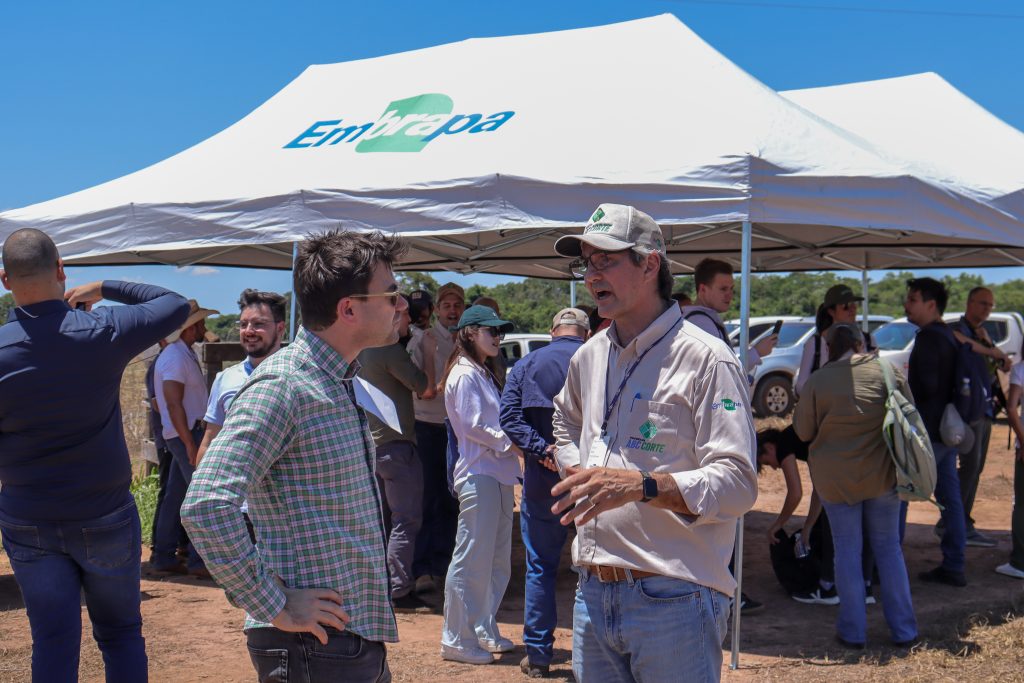
Financial Support for Producers
It wasn’t just technical implementation of ABC program activities that was difficult in Tocantins, farmers also struggled to implement sustainable practices due to a lack of financial resources. The initiative therefore works with farmers to raise awareness of credit mechanisms, climate finance opportunities and builds their capacity to access credit. By working in the program, farmers in turn expect to have a better access to lines of credit, because of their commitment to more sustainable production.
The initiative also trained staff within 7 local financial institutions in Tocantins. Lilian highlighted that opening dialogue with the banks and local government was crucial for the success of the initiative in Tocantins, “you need to bring people together in the landscapes, to open dialogue in order to change the relationship stakeholders have with the landscapes”.

The Role of Midstream and Downstream Companies
Since 2021, CI has been supported in Tocantins by Consumer Goods Forum Forest Positive Coalition of Action (CGF FPCoA) members: METRO AG, Nestlé, and Carrefour. But why do these companies choose to support initiatives like Tocantins?
“We certainly have to work on traceability and compliance, but it is not enough to impact the landscape.” Susy Yoshimura, Senior Sustainability Director for Carrefour in Brazil commented. “Landscape approaches allow you to be more connected to the ground, providing a real material transformation. Therefore, in terms of impact, complementarity of action on these two fronts is essential”.
The CGF FPCoA is a coalition of 21 of the largest consumer goods retailers and manufacturers. Its mission is to drive collective, transformative change to remove deforestation, forest conversion and degradation from key commodity supply chains, including through collaboration with stakeholders at landscape scale[11].
Besides financial support, midstream and downstream companies have an important role to play as they are often supporting other landscape initiatives and can act as a conduit for knowledge exchange. Susy highlighted that retailers like Carrefour and coalitions like the CGF FPCoA can support initiatives to learn from each other through information sharing.
“We need to work together, to not just put money into the initiative, but to also contribute intelligence, our supplier network. The CGF FPCoA is one of the only organisations that could have this kind of added value” stated Susy.
This sentiment is echoed on the ground by Embrapa, as Pedro Alcantara, Analyst, highlighted “all companies, regardless of their place within the supply chain, have an important role in contributing to the initiative […] we need to discuss and better establish a strategy for the participation of different companies and think about types of remuneration that promote a more sustainable production system”.
Lessons Learnt from the Collaboration
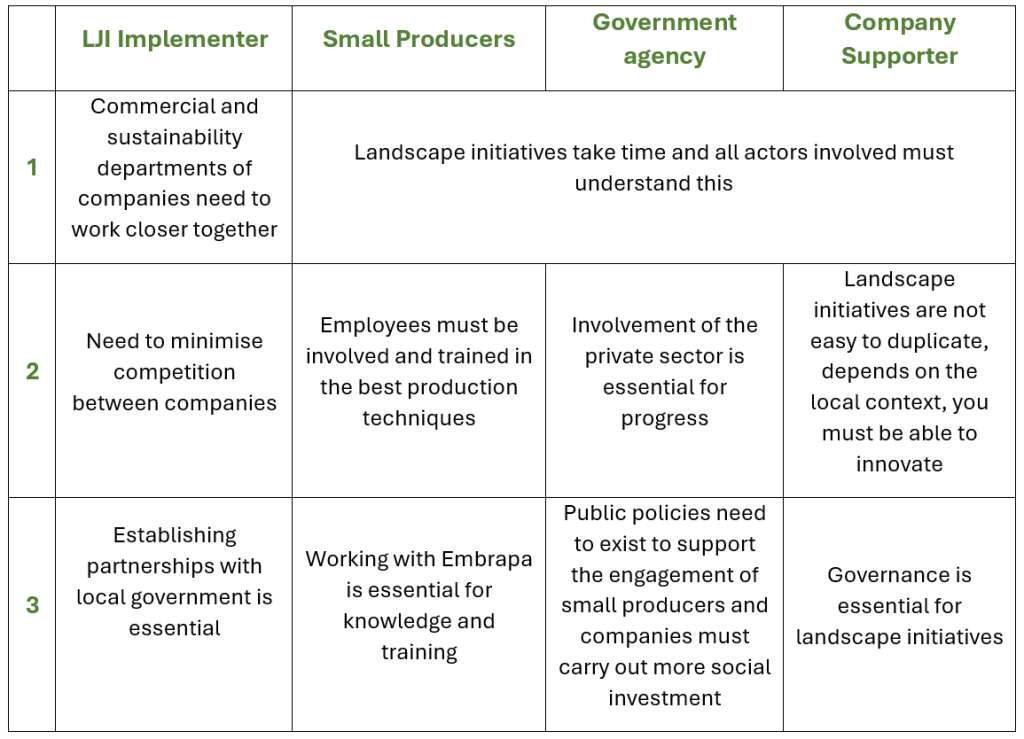
Future of the Collaboration
Although a lot of progress has been made in Tocantins, challenges remain. The short-term nature of elected local officials means that relationships and conversations must be restarted between the local government and CI. Short-term funding cycles also pose difficulties, as 1-year windows of funding are often not enough to support the longer-term nature of landscape and jurisdictional initiatives.
CI and partners continue to engage stakeholders to garner more support for the initiative. For instance, a partnership was established with an important municipal cooperative in Tocantins, the Cooperative Agro-industrial do Tocantins, COAPA, opening doors to reach more producers[12]. “With more support we can involve more farms, with more ambitious goals, more targets and indicators” stated Lilian.
Another way to attract support and ensure alignment between stakeholders’ efforts is establishing jurisdictional platforms to help coordinate the initiative. “We still have a gap in terms of exchanging among the actors” stated Susy, “there needs to be some more governance of the stakeholders involved”.
To address this challenge, CI and partners aim to scale the work-to-date through a jurisdictional approach which links climate-smart agriculture with conservation of the Cerrado across Tocantins. This will build from the existing support from Carrefour, Nestle, and METRO AG as part of the CGF Forest Positive Coalition, and leverage new, additional support from Walmart Foundation, UNDP and the Swiss government to establish multi-stakeholder platforms at the municipal and state level to strengthen coordination across stakeholders, build collective action towards a common vision and create enabling conditions for scaled impacts.
CI continues to engage stakeholders across Tocantins and across global supply chains to support farmers in this important agricultural frontier. The initiative welcomes new partners and new voices to collaborate and join in a shared vision for the state of Tocantins, support replication of the good practices to-date, and catalyze scaled approaches for protection, restoration, and improved management of the Cerrado biome.
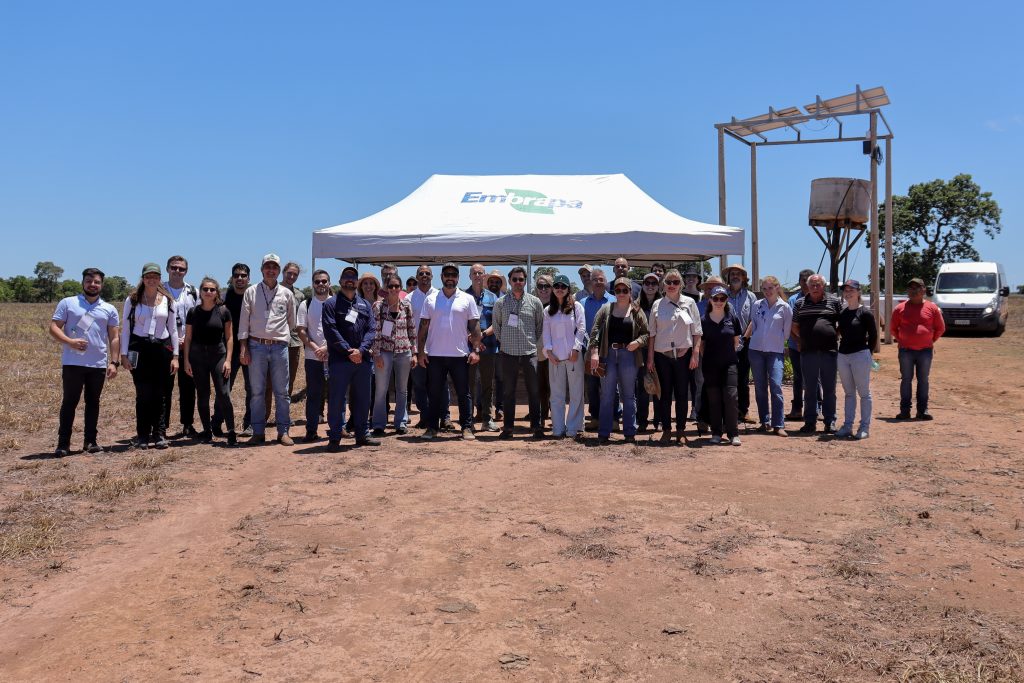
[1]https://www.worldwildlife.org/places/cerrado#:~:text=The%20Cerrado%20savanna%2C%20which%20lies,the%20planet’s%20animals%20and%20plants.
[2] https://moderndiplomacy.eu/2024/02/28/environmental-protection-and-food-production-in-the-cerrado-could-create-72bn-for-brazil/
[3] https://www.weforum.org/press/2024/02/environmental-protection-and-sustainable-food-production-in-the-cerrado-could-create-72bn-for-brazil-says-new-report/
[4] Information from Embrapa field visit, Tocantins, 9 November 2023.
[5] Marcelo Carauta, et al. Climate-related land use policies in Brazil: How much has been achieved with economic incentives in agriculture?, Land Use Policy, Volume 109, 2021, 105618,
[6] Embrapa – https://ipam.org.br/wp-content/uploads/2012/08/brazils_-low-carbon_agriculture-_progra.pdf
[7] MapBiomass Brasil, 2022
[8] Low-Carbon Regenerative Commodity Production in The Cerrado Biome: Fostering Adoption of Integrated Agricultural Production Systems in the State of Tocantins, Brazil. Conservation International, 2021
[9] https://www.theconsumergoodsforum.com/blog/2023/10/06/the-power-of-landscapes-to-drive-progress-on-climate-and-company-commitments-in-the-cerrado-biome-tocantins-brazil/
[10] https://www.washingtonpost.com/wp-dyn/content/article/2010/10/16/AR2010101604144.html
[11] https://www.theconsumergoodsforum.com/environmental-sustainability/forest-positive/about/
[12] Low Carbon Commodity Production in the Cerrado Biome: Fostering Adoption of Integrated Agricultural Production Systems in the State of Tocantins Brazil. Midyear progress report, CGF FPCoA. July 2022
